Everything to know about living in Thailand as an expat
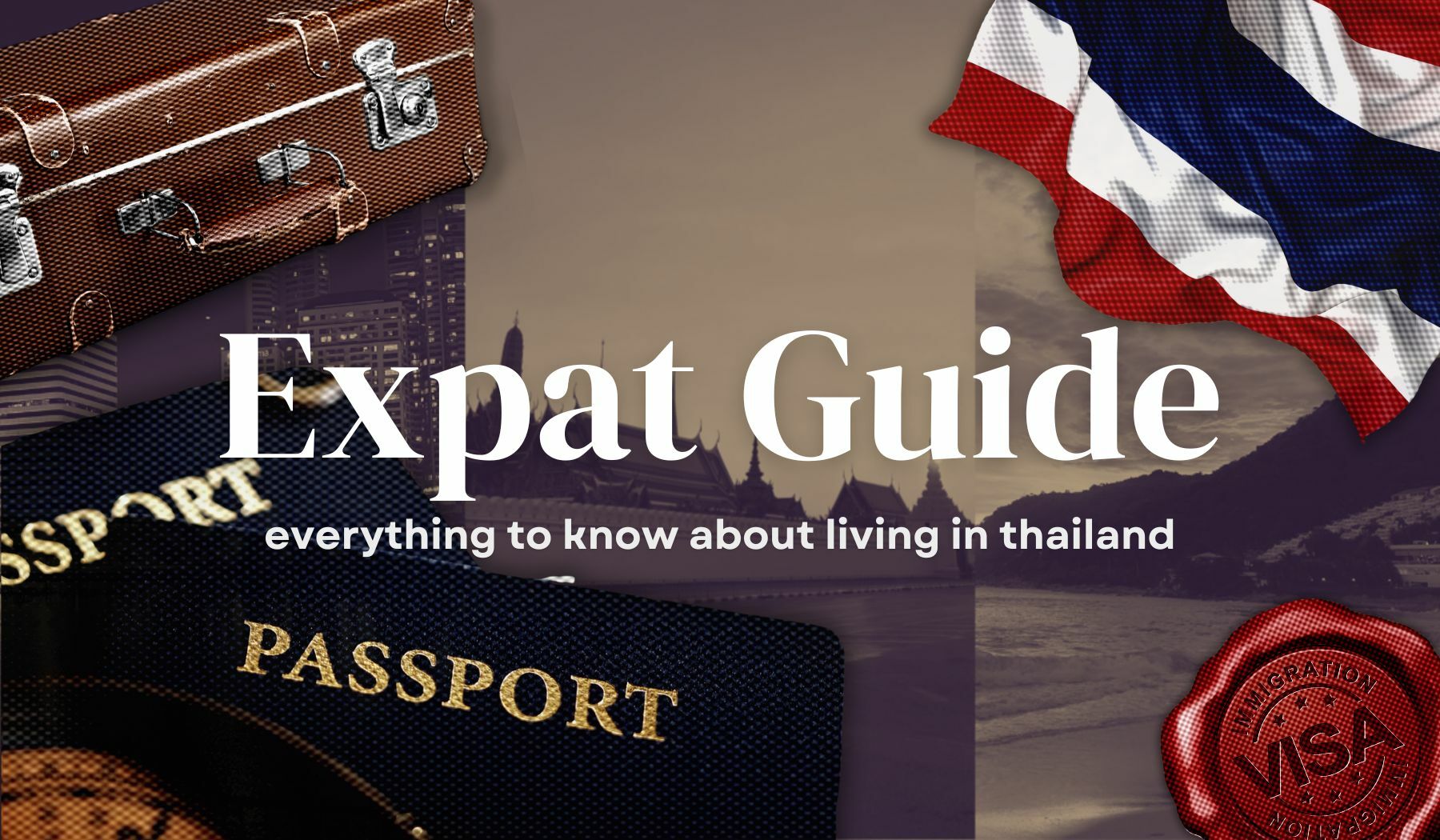
Thailand is a great country for food, leisure, and diverse culture. If travelling in Thailand is not enough for you, you might consider moving here to taste more of the Thai lifestyle. But before you move here, there are a few things you should know to make your time here even better. Getting familiar with the basics like immigration requirements, finances, language, and local customs can be useful for you. So here’s what to know about living in Thailand.
How to get visa and residency in Thailand
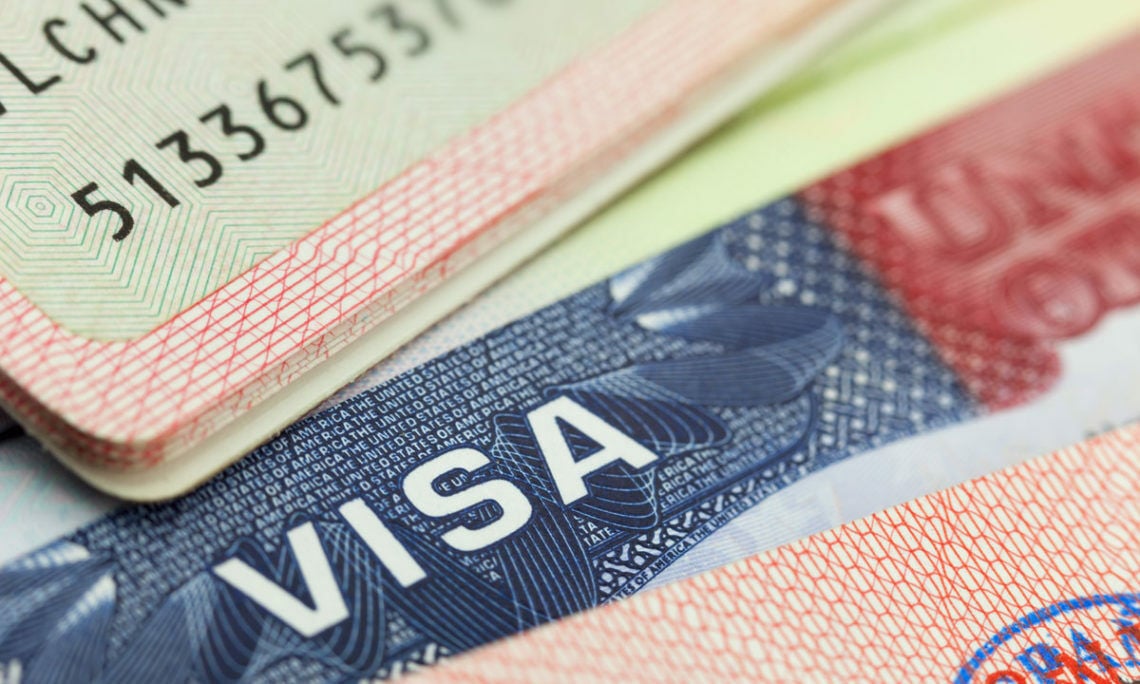
If you’re planning to live in Thailand, it’s super important to understand the visa options and residency requirements since there are many different types of visas available. It depends on what you’re doing, whether it’s working, retiring, or staying long-term. Knowing the details will help you pick the right one and make the process a lot smoother.
| Visa Type | Validity | Purpose | Requirements |
|---|---|---|---|
| Tourist visa (TR) | 60 days (extendable 30 days) | Short visits | Valid passport, visa application form, recent photo, proof of travel, financial evidence, accommodation booking. |
| Non-immigrant visa (Non-B) | Up to 1 year (extendable) | Work, study, or live in Thailand | Valid work permit, application form, financial evidence, and other supporting documents based on visa purpose. |
| Retirement visa (Non-OA) | Annual extension | For retirees aged 50 and above | Minimum income of THB65,000/month or bank deposit of THB800,000, health insurance, and other supporting documents. |
| Long-Stay visa (O-A/O-X) | 1 year / 10 years | Long-term stays | Proof of permanent residence, financial evidence, medical certificate, and application form. |
| Other visas | Varies | Study, media, religious activities, etc. | Specific requirements vary by visa type (e.g., Non-Immigrant ED for students, Non-Immigrant O for spouse/descendant), or Non-Immigrant O for volunteer. |
Residency and work permits
When moving to Thailand, you’ll need to figure out both residency and a work permit. Here’s a simple guide to help you through the process:
- Residency: To live in Thailand long-term, you’ll need to apply for residency. The requirements depend on the type of visa you have. For example, if you have a non-B visa, your employer will usually need to sponsor your work permit application.
- Work permit: This allows you to work legally in Thailand. Your employer will apply for the work permit on your behalf. You’ll need to provide documents like your passport, visa, and employment contract.
It’s a good idea to start the application process early. Gather all the necessary documents in advance to make your move to Thailand as smooth as possible.
Permanent residence tips in Thailand
- Gather all the required documents (employment, investment, education).
- Hire counsel for criminal background checks to avoid delays.
- Aim for intermediate conversational Thai for the interview.
- Apply between October and December; only 100 applicants per country.
- Be sincere and transparent when discussing your background and qualifications.
Need help with Thai PR? Apply with us today!
Popular cities for expats
Picking the right place to live in Thailand can totally make or break your experience. Each area has its own vibe, so think about what suits your lifestyle. Here are a few information to help you find your perfect spot!
| City | Pros | Cons | Population | Famous Neighbourhoods | Rent Cost | Food Cost | Transportation Cost |
|---|---|---|---|---|---|---|---|
| Bangkok | Exciting nightlife, diverse options | Busy traffic, higher living costs | 10.5 million | Asoke, Thonglor, Ekkamai | $$$ | $$ | $$ |
| Chiang Mai | Affordable living, rich culture | Limited job opportunities | 1.2 million | Nimman, Old City, Santitham | $$ | $ | $ |
| Phuket | Beautiful scenery, relaxed lifestyle | Tourist crowds, expensive housing | 400,000 | Patong, Kata, Karon | $$$ | $$ | $$ |
Bangkok
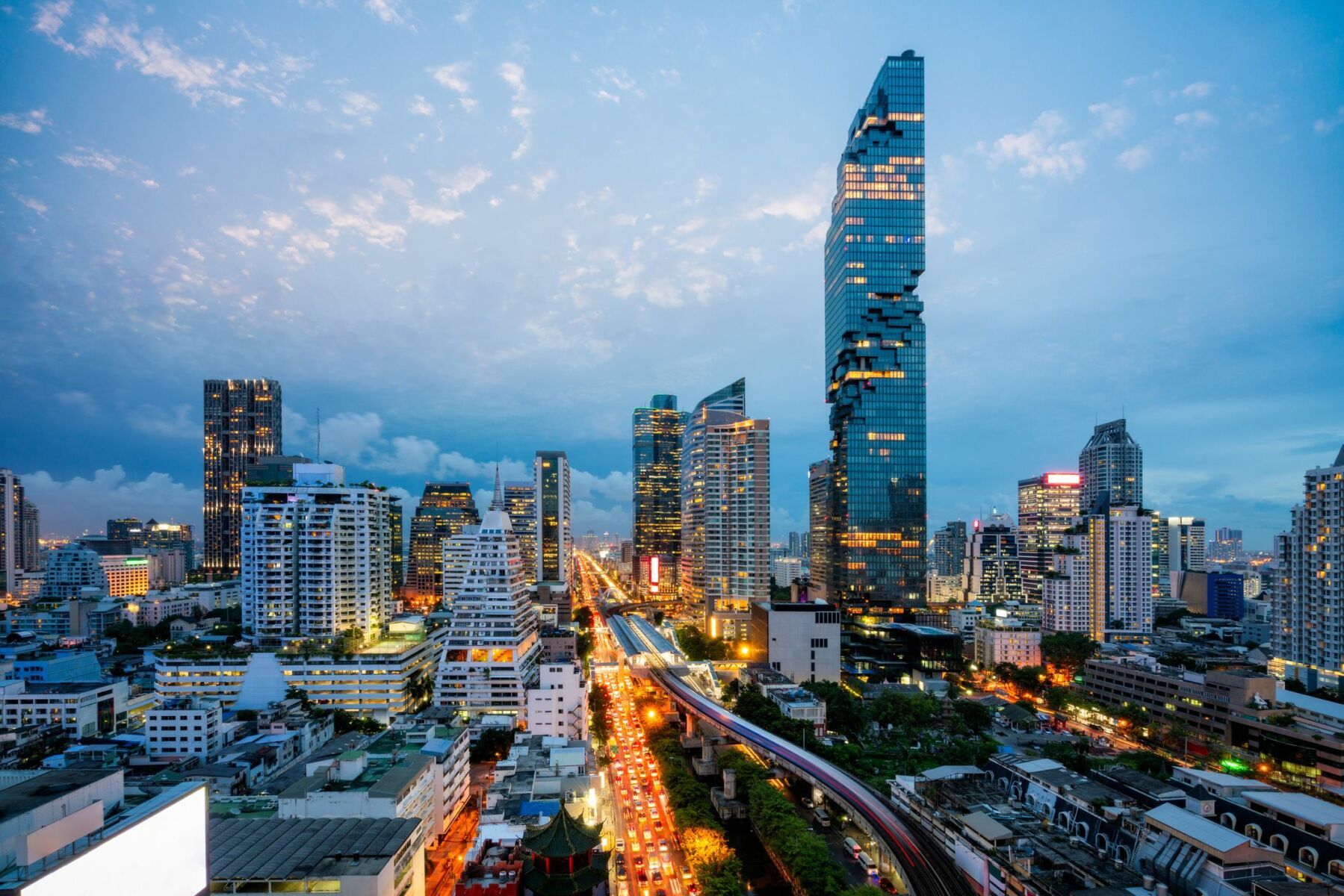
For vibrant city living, Bangkok offers everything from luxury condos to budget apartments (THB10,000 to 30,000/month). It provides excellent public transport like the Skytrain or Metro, makes exploring easy, and the street food scene is a must-try. You can join expat groups to connect with locals and other expats.
Don’t know what to do on your first few days in Bangkok? Check out 3-day guide to visiting Bangkok.
Chiang Mai

If you want to enjoy a cooler climate, relaxed vibe, and rich culture, Chiang Mai might be your answer. It’s great for digital nomads, with affordable rent (THB5,000 to 15,000/month). There is a friendly expat community, and outdoor activities like hiking make it easy to settle in. There are so many things for you to do and explore, here are few things you can do in Chiang Mai.
Phuket

If beaches and nightlife are your thing, Phuket’s perfect! You can find apartments for THB10,000 to 25,000/month. It’s ideal for those seeking a laid-back island lifestyle. You can connect with other expats through local meet-ups and online forums. Here are things you can do if you’re staying in Phuket.
Top websites for finding accommodation in Thailand
An expat’s cost of living in Thailand
Knowing the cost of living in Thailand can help you a lot for budgeting before your move. Costs can vary a lot depending on where you live and your lifestyle, but with the right information, you can manage your money well. Here’s an overview of monthly expenses you can expect from living in each city in Thailand.
| Expense Category | Bangkok | Chiang Mai | Phuket |
|---|---|---|---|
| Housing | THB7,000 to 15,000 | THB4,000 to 10,000 | THB10,000 to 50,000 |
| Food | THB6,000 to 12,000 | THB3,000 to 6,000 | THB6,000 to 12,000 |
| Transportation | THB1,000 to 2,000 | THB500 to 1,000 | THB1,000 to 2,000 |
| Healthcare | THB4,000 to 8,000 | THB2,000 to 4,000 | THB4,000 to 8,000 |
| Utilities | THB2,000 to 4,000 | THB1,500 to 3,000 | THB2,000 to 4,000 |
| Total Cost | THB20,000 to 41,000 | THB10,000 to 24,000 | THB23,000 to 76,000 |
Living in Thailand is usually cheaper than in Western countries, but costs can differ based on where you live and your lifestyle. Bangkok is the priciest, Chiang Mai is the most affordable, and Phuket is in between. Even though housing in Phuket is more expensive, food and transport are cheaper than in Bangkok.
For more money saving tips, check out our survival guide in Thailand.
What are the benefits of living in Thailand as an expat?
Living in Thailand is pretty great. For starters, it’s way cheaper than in many Western countries, so you get more control over your budget. You’ve got many options when it comes to housing, whether you’re into cosy, budget-friendly apartments or you want to live in a fancy villa. The weather is warm and tropical all year round, perfect for beach days, hiking, or just chilling outside. Plus, the culture is extraordinary. You can go to amazing festivals, try delicious street food, and learn about the local traditions. There’s always something new and exciting to experience here.
Healthcare and safety for expats in Thailand

Living in Thailand offers expats access to a wide range of healthcare services and requires attention to safety and security to ensure a pleasant experience. These are some things to consider when living in Thailand.
Healthcare options
-
Public vs. private hospitals
Public hospitals in Thailand offer lower costs, with fees for treatment often ranging from THB50 to THB500 per visit. However, wait times can be long, sometimes exceeding several hours. English-speaking staff may be limited in public facilities. On the other hand, private hospitals provide faster service and better English communication but are more expensive, with consultations typically starting at THB1,000 and rising significantly for specialised care. Many private hospitals are internationally accredited, meeting global standards for quality. Choosing between public and private healthcare depends on your budget and the level of comfort and service you require. -
Healthcare statistics:
Thailand has over 1,000 hospitals, with around 370 being private. Bangkok alone is home to more than 30 internationally accredited hospitals, such as Bumrungrad International Hospital and Bangkok Hospital, which are popular among expats. Approximately 90% of Thais use public healthcare services, while expats often prefer private hospitals for their convenience and quality of care.
Health insurance
-
Why you need it:
Health insurance is crucial for managing medical expenses, as private healthcare can be costly without coverage. A hospital stay can range from THB3,000 to THB20,000 per night, depending on the facility and the level of care. Insurance provides financial security and access to better healthcare facilities. -
Picking a plan:
Look for health insurance plans specifically designed for expats, which typically cover both inpatient and outpatient services. Monthly premiums can vary widely, from THB2,000 to THB10,000, depending on age, coverage, and pre-existing conditions. Make sure to review coverage limits, exclusions, and the network of hospitals covered by the plan.
Safety tips
-
Staying safe:
In Thailand, petty theft is common, especially in crowded tourist areas. Keep valuables secure, use hotel safes, and avoid displaying large amounts of cash. Road safety is also a concern, as Thailand has one of the highest rates of road accidents in the world, with around 22,000 deaths annually. Always use pedestrian crossings and be cautious when crossing streets. If riding a motorbike, wearing a helmet is mandatory by law and crucial for safety. -
Emergency contacts:
The general emergency number in Thailand is 191, which connects you to police, fire, and ambulance services. It’s wise to save the contact numbers of local hospitals and your embassy on your phone. Knowing some basic Thai phrases, such as “ช่วยด้วย” (chuay duay, meaning “help”), can be beneficial in emergencies.
Be prepared
-
Emergency readiness:
Identify the nearest hospital and police station to your residence. Keep a list of important contacts, including health insurance providers and local emergency services. Preparing a personal emergency kit with copies of important documents, some cash, and a phone charger can be useful. Awareness and preparation are key to feeling secure in any situation.
By understanding healthcare options and following these safety tips, you can have a safe and enjoyable experience living in Thailand.
Safety tips for expats in Thailand
- Get vaccinated: Protect against tropical diseases like dengue fever, especially during the rainy season.
- Choose private hospitals: Choose private facilities for better care, shorter wait times, and English-speaking staff.
- Rent a car: Avoid motorbikes due to high traffic fatality rates; cars are safer for travel.
- Monitor air pollution: Be cautious of air quality, especially in cities during the burning season (January-April).
- Drink bottled water: Avoid tap water to prevent stomach issues; always choose bottled or purified water.
Essential customs and etiquette in Thai’s culture
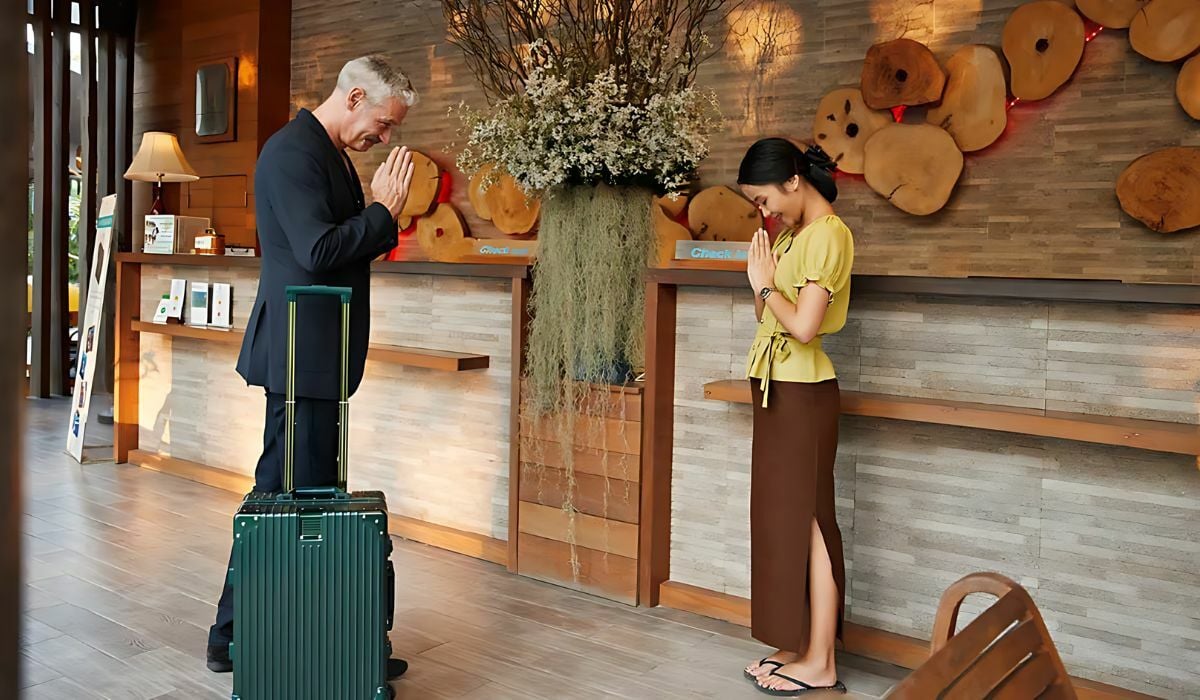
Understanding local customs and etiquette is crucial when you move to Thailand. Thai culture values respect, community, and hospitality. You notice these traits when locals greet you with warm smiles and open arms. Show respect towards the Thai royal family as it is a serious offence to disrespect them. Additionally, greet people with a “wai,” which involves pressing your palms together and bowing slightly. Keep in mind that removing your shoes before entering someone’s home is customary. Such actions foster goodwill and help you integrate into the community.
Language considerations
Many Thais, especially in tourist areas, speak English. However, outside these zones, communication may become challenging. Learn basic Thai phrases to communicate with locals effectively. Familiarity with the language enhances your experience and shows respect for the culture. Start with simple greetings or common questions, which can create positive interactions.
Thai language schools
If you’re thinking of living in Thailand, signing up for a Thai language school is a helpful option. There are places like the AUA Language Centre or Thai Language Hut that have courses designed just for expats. Not only will you pick up the language faster, but you’ll also meet other expats and locals, which makes making friends a lot easier. Knowing the basics of Thai and connecting with people can really smooth out your transition. Learning the local culture and building a social circle early on make all the difference when you’re starting your new life in Thailand.
Interested in taking a course? Check out the best language schools in Thailand.
Working in Thailand

Moving to Thailand offers several job opportunities, especially for expats. Understanding the job market and your options helps you secure a position that suits your skills and lifestyle.
Job market insights
Work permit requirements: For you to work in Thailand, a valid work permit is essential. This permit is only issued for specific jobs listed on the current permitted list from your nearest Thai embassy or consulate. Ensure you check this list early in your job search.
Business culture: Encounter a vibrant business culture in Thailand. While Thai is the official business language, many professionals speak English, particularly in large cities like Bangkok. Embracing some basic Thai phrases can aid in building relationships and networking within your industry.
Business hours: Familiarise yourself with the standard business hours, which run from 9.00AM to 5.00PM, Monday to Friday. Knowing these hours allows you to plan meetings and appointments effectively.
Consider teaching English:

Many expats find success by teaching English in Thailand. To teach, obtain a TEFL certification. This qualification enhances your employability, as many language schools prefer candidates with formal teaching credentials.
By focusing on these insights and tips, you create a great foundation for your work experience as you live in Thailand. With proper preparation, you can enjoy a rewarding career while immersing yourself in the rich culture of this beautiful country.
Transportation in Thailand
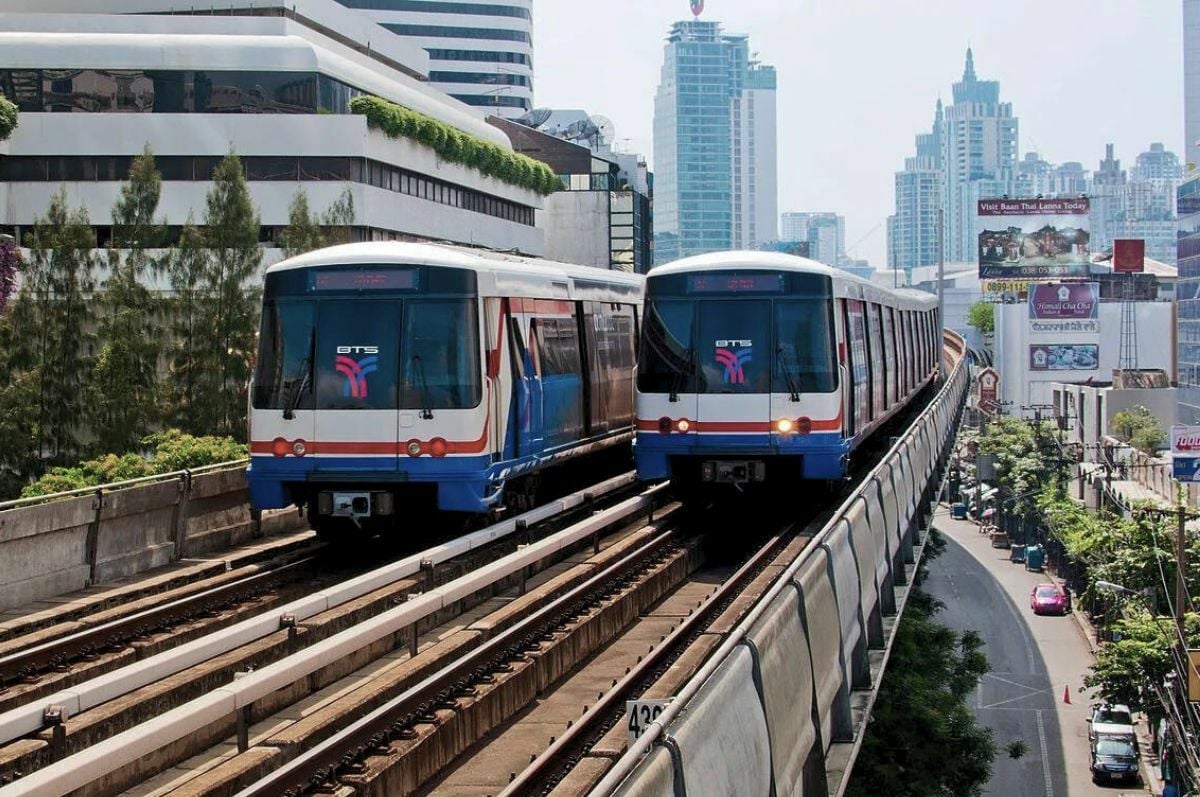
Getting around by public transport in Thailand is pretty convenient. Buses run frequently between cities and towns, and they’re very affordable. Trains are a comfortable way to travel longer distances with a well-established network. In major cities, taxis use metres for fair pricing. For a fun twist, try tuk-tuks for short trips, but they can be a bit more expensive. If you’re into motorbikes, they’re a popular choice for quick trips, and rentals are easy to find. All these options make getting around Thailand both easy and exciting.
| City | Transport Option | Description | Fare Range (THB) |
|---|---|---|---|
| Bangkok | BTS Skytrain | Elevated train system connecting many parts of the city | THB15 to 65 |
| MRT Underground | Subway system serving various areas of the city | THB16 to 40 | |
| Buses | Comprehensive bus network operated by BMTA | THB6 to 40 | |
| Taxis | Metered taxis available throughout the city | Starting at THB35 + THB5/km | |
| Tuk-tuks | Three-wheeled vehicles for short trips | Varies (approx. THB150 to THB1,500) | |
| Chiang Mai | Songthaews | Shared taxis using converted pickup trucks | THB20 to 40 |
| Tuk-tuks | Available for short trips | Varies | |
| Ride-sharing | Services like Grab for private transportation | Varies | |
| Phuket | Buses | Air-conditioned buses connecting major areas | THB20 to 50 |
| Tuk-tuks | Common in tourist areas for short trips | THB200 to 500 | |
| Motorbike taxis | Quick trips on motorbikes | THB50 to 100 | |
| Ride-sharing | Grab available for private transportation | Varies |
Where to bank as an expat
Bank selection is an aspect for expatriates banking in Thailand, as they need to find a bank that meets their requirements, well known for having offshore accounts that offer various currency options and services.
Which bank would be the choice for me to go with?
When picking a bank in Thailand, go for one that suits your expat’s needs. For example, HSBC has a great Expat Bank Account with a Global Money Account, making it easier to manage money in different countries. They even give you a personal relationship manager for more personal help. It’s also handy to find banks that let you manage multiple currencies, like USD, EUR, or GBP, which can save you on exchange rates and fees. Make sure the bank has an easy-to-use online banking platform and good customer service for quick help when needed. Or if your workplace requires a local bank account, you may consider getting a Thai bank account. Before deciding, check out what other expats are saying on forums and community groups, so you’ll get some real insights and tips that way.
Tax system for expats

Understanding the tax system in Thailand is essential for a smooth transition while living in Thailand. Here’s what you need to know about paying taxes as an expat.
What to know about paying taxes in Thailand for an expat
You become a tax resident in Thailand if you stay for more than 183 days in a calendar year. This status means the Thai government taxes your worldwide income, not just income sourced from Thailand. This includes salaries, business profits, dividends, interest, and capital gains. Familiarising yourself with the progressive tax rates, which range from 5% to 35%, based on your income level, is essential. If you plan to move to Thailand, understanding these rates will help you budget better and avoid surprises during tax season.
How to pay tax as an expat
Paying taxes as an expat involves a few straightforward steps. Each year, file your tax return by the end of March. You can easily file online via the Thai Revenue Department’s website or enlist the help of a tax agent if you find the process daunting. Make sure to gather all necessary documents, like income statements and any receipts for expenses related to your work or business. Keeping track of your documents simplifies filing and ensures you’re ready when the time comes. Remember, thoroughness pays off. Being precise and organised makes living in Thailand much easier, especially regarding taxes.
To learn more about type of taxes or rates, you can check out this guide to taxes for expats in Thailand.
Driving in Thailand
Driving in Thailand offers the freedom to explore at your own pace. Roads are generally well-maintained, but keep in mind that traffic can be unpredictable, especially in urban areas like Bangkok. The driving style may differ from your home country. Expect a fluid traffic flow with motorcycles weaving between vehicles. Ensure familiarity with local road signs and regulations, which differ from Western norms.
How to get a driver’s licence in Thailand
Acquiring a driver’s licence in Thailand is a straightforward process. First, if you hold an International Driving Permit (IDP), it is valid for up to 90 days. To get a Thai driver’s licence, visit the Department of Land Transport (DLT). Prepare essential documents, including your passport, IDP, and a medical certificate from a local clinic. You will undergo a vision test, and depending on your driving experience, you may also take a written and driving test. Once you complete these steps, you receive your licence, which allows you to navigate Thailand’s roads comfortably. Moving to Thailand opens up exciting travel opportunities through its accessible transportation system.
Important driving rules you should know
- Drive on the left: Vehicles always operate on the left side of the road.
- Seatbelt and helmet laws: Front seat passengers must wear seatbelts; all motorbike riders must wear helmets.
- Right of way: The vehicle on the left has the right of way at junctions.
- Drink-driving laws: Legal blood alcohol limit is 0.05%; 0.02% for drivers with less than five years of experience.
- Parking regulations: Follow designated parking rules; red and white curbs indicate no parking zones.
For more driving rules, please check out these important rules and behaviours for driving in Thailand.
Social life and community
Living in Thailand offers a vibrant social life and a welcoming community for newcomers. Engaging with fellow Thailand expats can enhance your experience and help you settle in comfortably.
Expats community in Thailand
You’ll find that each major city in Thailand features a diverse expat community. Bangkok stands out as the capital with numerous social clubs, groups, and organisations catering to different interests. You can connect with people from various nationalities and backgrounds. Chiang Mai attracts many digital nomads, offering coworking spaces and social events that foster a supportive environment. If beach life appeals to you, Phuket provides a significant expat community engaged in beach activities and vibrant nightlife. Joining local online forums or expat Facebook groups helps you meet others who share similar interests, making your move to Thailand more enjoyable.
Living in Thailand is an exciting adventure. Immerse yourself in the culture by enjoying local festivals and trying out new dishes. Embrace the change by joining social groups and volunteering to make new friends. Learn some Thai phrases and customs to connect better with locals. Watch your budget by shopping at local markets and using affordable healthcare. Explore every corner of Thailand, from Bangkok’s lively streets to Phuket’s stunning beaches. Dive in and make the most of your time in this incredible country!
Tips for living in Thailand as an expat
- Learn basic Thai: Familiarise yourself with essential Thai phrases to enhance communication and show respect for the local culture.
- Understand the cost of living: While Thailand offers a lower cost of living, expenses can vary significantly by location and lifestyle choices.
- Join expat communities: Engage with local expat groups on platforms like InterNations or Facebook to make friends and find support.
- Embrace local cuisine: Explore street food and local markets for affordable and authentic Thai dishes.
- Be mindful of cultural norms: Respect local customs, such as removing shoes before entering homes and temples, and being polite in social interactions.
- Use legal services for visas: Consult legal firms for visa applications to avoid complications and ensure compliance with local regulations.
- Explore transportation options: Use public transport, taxis, or motorbike taxis for convenient travel, but always ensure taxis use the metre.
- Stay healthy: Access affordable healthcare and consider health insurance to cover any medical needs.
- Participate in local events: Attend cultural festivals and community gatherings to immerse yourself in Thai culture and meet locals.
- Be prepared for weather variations: Thailand has a tropical climate, so stay hydrated and protect yourself from the sun, especially during the hot season.
Latest Thailand News
Follow The Thaiger on Google News:


























